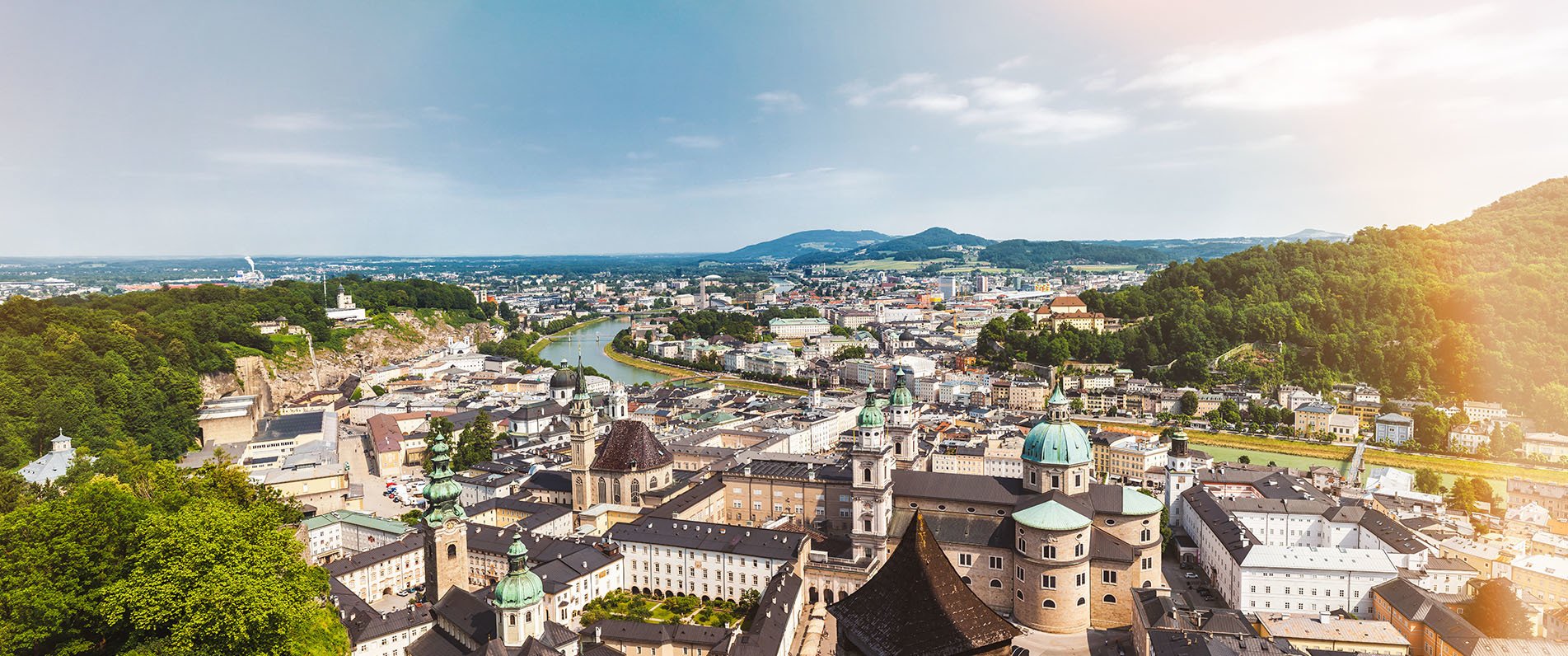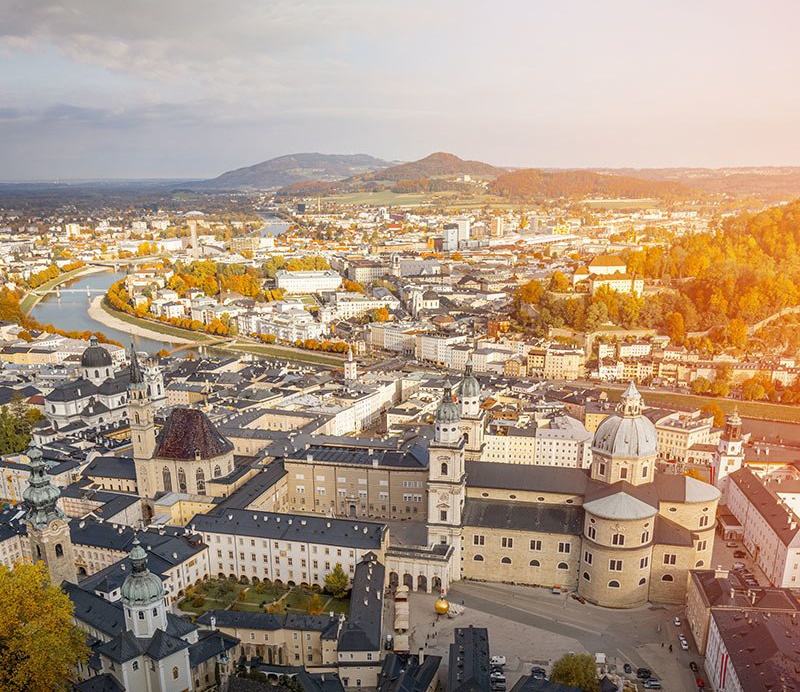Host University
At its heart, Salzburg is a university city. The Paris Londron Universitie Salzburg was founded in 1622 by its namesake, Prince Archbishop Paris Lodron, and has enjoyed a long and illustrious tradition of excellence ever since.
Today, the university is comprised of four faculties with 18,000 students and around 2,800 staff members. The University of Salzburg offers 115 programs of study, some of which have been more recently established in cooperation with other universities, and a well-balanced student-to-teacher ratio.
Faculties and programs
- Biology
- Catholic Theology
- Chemistry
- Computer Science
- Data Science
- Digital Communication Leadership
- Earth Sciences
- Education
- European Union Studies
- Geography
- Historical and Cultural Studies
- Language Sciences
- Law
- Law and Business
- Life Sciences
- Literary and Cultural Studies
- Mathematics
- Medical Biology
- Molecular Biology
- Philological and Cultural Studies
- Philosophy
- Physics
- Psychology
- Social Sciences
- Sports Sciences and University Sports
- Teacher Education
- Religious Studies
- Political Science
Programs in English at the University of Salzburg
- Applied Image and Signal Processing
- Center for European Studies
- Chemistry and Physics of Materials
- Copernicus Master in Digital Earth
- Digital Communication Leadership
- Ecology and Evolution
- Human-Computer Interaction
- Innovation and Management Tourism
- Medical Biology
- Molecular Biology
- Philosophy
- Political Science – Integration and Governance (POSIG)
- Psychology
Updated: 09/05/2023 10:02AM


